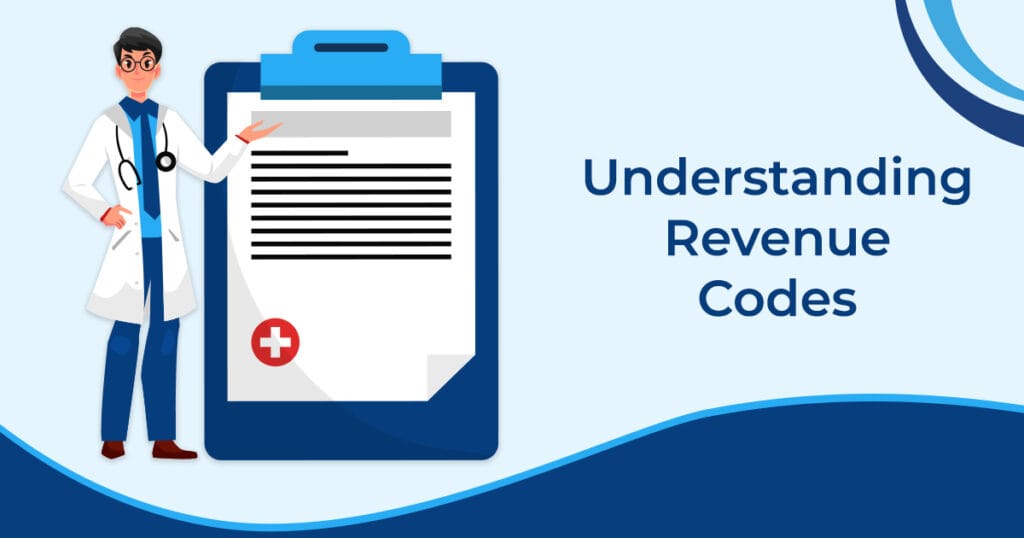Physician billing services are highly complicated, involving rules and regulations, plus constant updates. An incorrect move within this complex process can lead to denied claims, lost payments, compliance issues, or even hefty fines. Similarly, in such a scenario where the financial health of your practice is at stake, it would be indispensable to ensure that the billing process is accurate rather than efficient. Moving towards perfection in your critical area will find only absolute safety for your practice’s fiscal health.
This guide will take you toward physician billing solutions, including the essential components. We also identify the importance of revenue cycle management in ensuring the practice’s financial stability.
What is Physician Billing?
Physician billing is the process of billing patients and insurance companies for doctor services. It’s creating a bill, also called a claim, for treatment, consultation, or test done by the doctor. These claims are sent to the patient or their insurance company to get paid. It only covers doctor fees and services, not hospital or facility charges. It’s all about getting doctors paid for the physician billing solutions they are providing to the patients.
Are you searching for a reliable medical billing company to handle all your billing-related hassles? If so, feel free to schedule a free consultation with MAVA Care.
Medical Billing for Physician Services
Medical coding for best physician billing services involves converting a psychiatrist’s services, such as exams, treatments, or procedure codes. You can use the codes in claims submissions and send them to insurance companies for payment. Billing services for physicians ensure correct charges are submitted; coding ensures services are documented. Here are some of the services our billers have expertise in:
- Claims processing same day
- Account receivables analysis
- Weekly and monthly reports
- Analysis of codes and procedures regularly
- Review of fee schedules for updates
ICD-10 coding for Physician Billing Solutions
We guarantee precise coding and stay up to date with the latest regulations to reduce claim denial and increase revenue. Here’s how:
- Review patient charts for diagnosis, procedures, and services.
- Select ICD-11, CPT, and HCPCS codes.
- Verify codes for accuracy and coding guidelines.
- Apply modifiers when necessary to indicate special conditions.
- Use coding software and tools to select and verify codes.
Related Read : Guidelines and Documentation for Hypothyroidism ICD 10
Physician Billing for Hospitals
Here are a few things to consider for hospital billing:
- Patient details: demographics, physician referral, insurance numbers, Medicare, Medicaid, Social Security, medical history.
- Verify patient insurance coverage, eligibility, and benefits before services to avoid claim denials and out-of-pocket surprises.
- Assign billing experts to physicians to handle multiple billing models: Quality billing, telemedicine billing, physician billing solutions, episode-of-care billing, etc.
- Translate diagnoses, treatments, and procedures into ICD-10 diagnoses, E/M codes for service complexity, HCPCS Level II codes for specific procedures and supplies, modifiers, and CPT codes for insurance claims for services rendered.
Essential Components of Physician Billing
Medical Coding and Documentation
Documentation is key in the medical industry for billing and medical coding services. Accurate documentation in medical billing is what gives you a full picture of a patient’s medical history. How else can healthcare professionals treat or diagnose a patient?
Additionally, documentation in physician medical billing services records the services for a patient. These records include services like diagnostic tests, medications, and treatments. Documentation in medical billing plays a crucial role in the generation of claims submitted to Medicaid and Medicare insurance companies. However, the accuracy of this documentation is vital because errors can lead to delays or denials in processing.
Claims Submission
Claim submissions are part of the healthcare system and play a big role in the reimbursement process between healthcare providers and insurance companies. Claim submission means submitting healthcare claims to insurance companies or payers for payment consideration.
Similarly, it involves providing detailed information about the services rendered by healthcare providers to ensure accurate reimbursement. When a patient wants medical treatment, the healthcare practitioner creates a claim that includes all relevant information about the services rendered.
Payment Posting
As a healthcare provider, you may have heard of payment posting, but what is payment posting in medical billing? The payment posting procedure assesses a healthcare practice’s payments and financial situation. Payment posting, in the context of healthcare revenue cycle management, refers to the meticulous recording of payments.
Consistent payment posting, aka cash posting, lets you view payments and gives you a snapshot of your medical organization’s financial status so that you can identify and resolve issues. It also involves logging payments into medical billing software.
Claims Denial Management
The denial management process is critical to revenue management, and its mission is to evaluate every underpaid claim, identify one or more insurance company patterns, and appeal the rejection based on the contract conditions with the provider.
Claims denials are a challenge for most healthcare organizations as they struggle to implement effective claims denial management processes. So, claims denial is just part of the revenue cycle and claims denial management brings challenges to the providers.
Payment Reconciliation
Payment reconciliation is a financial process of matching and comparing transaction records to ensure the payments made or received are accurate and match the records in the company’s books or financial statements. It is to verify financial transactions, avoid errors or discrepancies, and maintain financial records integrity.
Importance of RCM in Physician Billing Services
1. Revenue Focus
Make sure your organization is getting the most reimbursement for the services you provide. Stay up to date on current coding and billing practices, review fee schedules regularly, and negotiate with payers.
2. Medical Coding Quality
Accurate medical coding is the foundation of RCM. Invest in ongoing coding training for your coding staff to keep them current on coding guidelines and changes. Do regular audits to check coding accuracy and identify areas for improvement. Quality medical coding reduces claim denials and ensures healthcare providers get paid .
3. Set Realistic Revenue Targets
Set realistic and measurable revenue targets that depend on your organization’s financial situation. Consider payer mix, patient demographics, and market trends when setting these targets. Share these targets with your team and measure performance against them. Setting realistic revenue targets gives your organization a clear direction and allows for proactive adjustments to RCM processes.
Physicians Billing and Management Services
Revenue cycle management is the backbone of medical practice. Get profitable with our RCM experts. We have the solution for your revenue cycle problems. Outsourcing to an RCM company:
- Boosts financial performance – revenue and cost.
- Increases transparency and accountability.
- Reduces denials and rejections – faster payments.
- Patient satisfaction – accurate billing.
- Compliance with regulations and standards.
Benefits of Physician Billing Services
50% Reduction in Overhead Costs
Outsourcing medical billing reduces administrative expenses, saves time and money, and lets healthcare providers focus on patient care.
HIPAA Compliance
Ensures patient data is handled securely and meets strict privacy regulations, protecting sensitive information. Patient data is handled securely and meets privacy regulations.
Get Paid Faster
Streamlined billing processes and accurate claim submissions speed up payments from insurance companies, improving cash flow. Billing processes are streamlined, and claims are accurate.
Physicians Auditing and Billing Services
There are a few factors to consider while auditing physician services:
Flexibility
Practice management and EMR services, which include full-service medical billing and certified coding, allow you to spend extra time with your patients and less time managing daily operations.
Efficiency
It is necessary to concentrate on the complete collection process, from patient accounts receivable to rigorous commercial government payer denials and appeal collections.
Convenience
Raise all hospital, surgery center, and provider group receivables by providing online credit card handling and patient funding.
Outsourcing Physician Billing Services with MAVA Care
Working with MAVA Care on physician billing ensures a seamless and hassle-free billing procedure. Our team manages claims, lowers rejections, and improves collections while following industry standards. Outsourcing can help you save up to 50% on expenses, remove administrative tasks, and focus on patient care
We are HIPAA compliant and ensure the protection of patient data. Our processes are optimized to allow for speedier claim submissions and payment. Trust MAVA Care to handle your billing and get better financial results.
Final Thoughts
Finding the right physician billing company is a very important decision and requires careful contemplation. A credible partner should be easily aligned with your practice to collect your revenue and lighten the administrative burden in physician billing services. Look for a company with a history of medical billing.
Their experience will mean they understand the ins and outs of medical billing and can handle any issues that come up. Similarly, you may also rely on MAVA Care, a medical billing company that smooths all your billing, coding, account receivables, and denial management.









